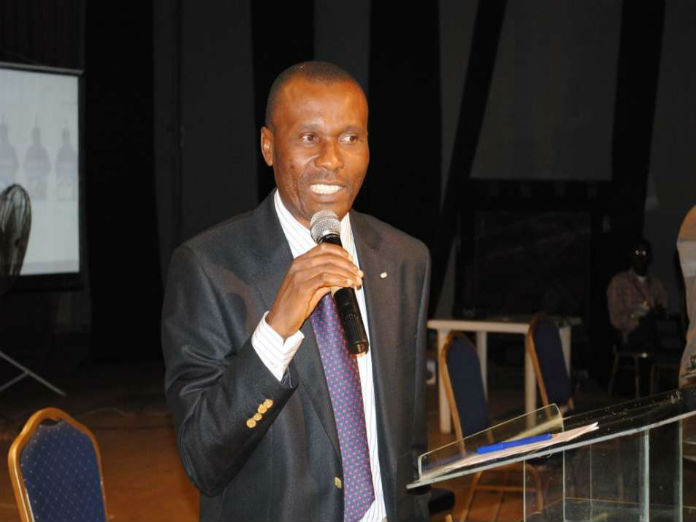STATE POLICE: IMPLICATIONS FOR NATIONAL SECURITY
Dr. Usani Uguru Usani
The intense engagement of Nigerian public in the establishment of “State Police” Force is an interesting indication that we are all concerned about the safety and security of Nigerian citizens. For this reason, different sheds of opinion dominate our minds based on various informing considerations.
I note that proponents of State Police consider the positive impact of Police-community closeness. Two: that the Governors will have the powers of control over the sheriffs and/or the Commissioners of Police in their States. True as this may be, I appeal to all readers and engaging public to be open and objective in appreciating every view on its potency or otherwise for the present and its prospects for the future.
It is primarily relevant to be concerned with the following puzzles – Will the Commissioners of Police be appointed by the State Governors? Will such personnel at such level be drawn from the Federal Police Force or will they be appointed from the mass populace? If yes, are they going to be appointed without prerequisite training?
Any answers proffered to these questions bear their respective implications. It is likely that our preferred stance on these issues may obliterate the realities of intriguing outcomes of these agitations on either side of the ‘coin’. Every argument put forward needs to have a tangent with our quest for a secure environment that maximally threatens national peace at present.
The litmus test for the State Police proposal can be likened to remote consequences of the supernumerary police that was approved for some State Governors in the twilight of 2003 elections by Tafa Balogun, the then Inspector General (IG) of the Nigeria Police. Such approvals were used to engage thugs freely and deploy small arms in large measures for their use against opponents.
Let us look at the issues that may not be contemplated but are obvious in the contraptions of our (un)ethical disposition, “political culture” and our perception of (un)ideological disagreements.
I am not likely to canvas the popular views, though I am conscious of the public risk my views will attract. However, with absolute confidence, I am certain that a misadventure into this colossal risk of State police formulation shall vindicate me.
A constituted State Police Force will owe all loyalty to the political structure of that State. As in the State Electoral Commissions, (let us consider their operations since 1999). The Candidates that win Local Government elections are determined by the partisan political leadership of that State. State Police will be viable tools for State Governors for determining election outcomes. In a General election, the State Police of Governor “Y” will attempt to secure their jobs by guaranteeing every step for the victory of their Governor. Assuming there arises a rival attempt to resist the Governor’s army (State Police) officially, a war of arms in official endorsements of various legitimate authorities will automatically ensue.
If by any means, INEC decides to announce an opponent of the sitting Governor in an election, the tendency will be to disband the workforce of that State Police by the new Governor and enlist a fresh regiment. Automatically, arms-trained personnel will be unleashed on the society into the Labour market with attendant possibility of gang-alignment into kidnapping, bunkering, robbery and other arms-related crimes.
Furthermore, shall the proposal delist the police force management functions form the exclusive list into the concurrent list? Implications to constitutional amends or alterations remain valid considerations as we think of this option.
Further thoughts should reflect on inability of States to equip and meet up with the financial responsibilities of State Police demands. A positive optimist view will be to seek review in the proportion of revenue sharing formula. Appropriate as this may seem, we should not be quick to forget that without this added responsibility, many States are hardly able to pay wages and civil service remunerations.
Another danger is the tendency to float a total disruption agenda when some persons’ eventualities do not favour their stance. If the views of a particular State Governor tally with an operating cult sect or a treasonable movement, the State Police will automatically constitute the legitimate/legal armed wing of that sect or movement. The effect will be to launch attacks against perceived contra-interests. The outcome will be determined by who is stronger in maintaining public peace or disrupting it. Think about this.
Ultimately, if the Indigenous People of Biafra (IPOB), EGBESU, etc. take control in 3 to 4 States in the various geo-political regions, in disagreement with the central political ideology, the escalation may be worse than a civil war. The agreement between leaderships of such groups can be challenging to national security. Political, tribal, religious introductions will further create deeper lines of multi-racial discords.
However, some environments of cosmopolitan nature may be suitable for the State Police option. This is a choice because in such environments, it is presumed that there is limited tribal dominance and so it is possible to exercise variance of opinions. Nonetheless, the danger still looms because the recruitment process, which is a selection process can still define strands of interests as defined earlier along religion, ethnicity, cult identities, partisan cleavages, etc. From remote sensibilities, we need to learn the origins of challenges that certain countries have been over-run by gangs and be guided accordingly. Lessons from Cambodia, Columbia etc. will be good examples. Communist guerrillas, crime syndicates and government forces of Columbia have engaged in inter-conflicts which cost the country 5 million human displacements and 220,000 deaths of civilians and military personnel.
The anti-corruption crusade is not a pleasant pill for many. Two of such rich Nigerians can initiate a nexus between Boko Haram and IPOB, Cult Groups and volunteer sponsorship of a revolt under political legitimacy of State Police cover, and we would have lost a country. We should note that there is abundance of ready tools (youths) who have no idea of what an internal upheaval can lead to, but are ready to imbibe the views of agitation to commit treason under freedom fights for various “rights”.
I do hope that we are not tempted to suggest that State Police formations imply community policing. Community policing is a security strategy that focuses on ties and working relationships between security agencies and members of the community. Its aim is to ensure sensitivity to their environment by interwoven intelligence interactions for better and sustainable peace. Each community, thus, has a responsibility for her peace architecture. It is a solution-oriented and intelligence-led in which both security personnel and community members rely on each other and contribute in reducing crime and raising the sense of security within a community.
True patriotism should bear the underpinning of a country that enjoys sustainable unconditional peace where every citizen feels protected under common rule.




